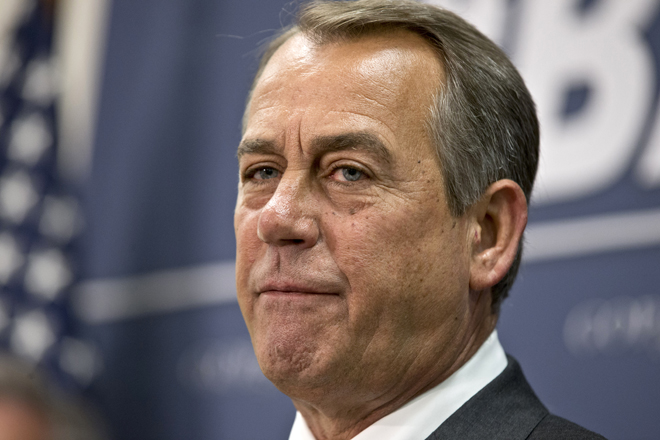I’ve noted a few times now that I think House Republicans will have a hard time passing anything anyone might straight-facedly call “comprehensive immigration reform.” And for that reason I think there’s merit to Chuck Schumer’s theory that a big Senate vote is a predicate to ultimately enacting a bill. Under this theory, at some point John Boehner will face a binary choice between allowing the Senate bill to pass, and saddling the GOP with all of the consequences of killing it, and killing it in an unambiguous way. Real bipartisanship in the Senate both ups the pressure on Boehner and gives him cover.
But at the risk of being a wet blanket, I don’t think recent history provides any real insight into what Boehner will do.
Democrats like to point to the fact that Boehner cracked and broke the Hastert rule to pass [deep breath] the fiscal cliff bill, a payroll tax cut extension, Sandy aid, VAWA reauthorization, and an extension of student loan interest rates. And indeed he did.
But what distinguishes immigration reform from those issues is that the House can let this Senate bill gather dust for months and months and literally nothing will change. Advocacy groups will use their inaction to energize voters, and that’s something Republicans need to think about. But the consequences of killing the Senate immigration bill are that the status quo prevails.
By contrast, not putting Sandy aid on the floor would have consigned hundreds of thousands of hurricane victims to unusual suffering. Not putting the fiscal cliff bill on the floor would have increased everyone’s taxes and possibly caused a recession. The House did sit on its hands when VAWA authority expired, it was terrible politics, and they caved after the election. The student loan and payroll tax issues speak for themselves.
As tired as everyone is of crisis governing, there’s a reason deadlines were so crucial to legislative action last Congress, and the dynamic didn’t change much after the election. Unfortunately for everyone involved, there’s no deadline now.






